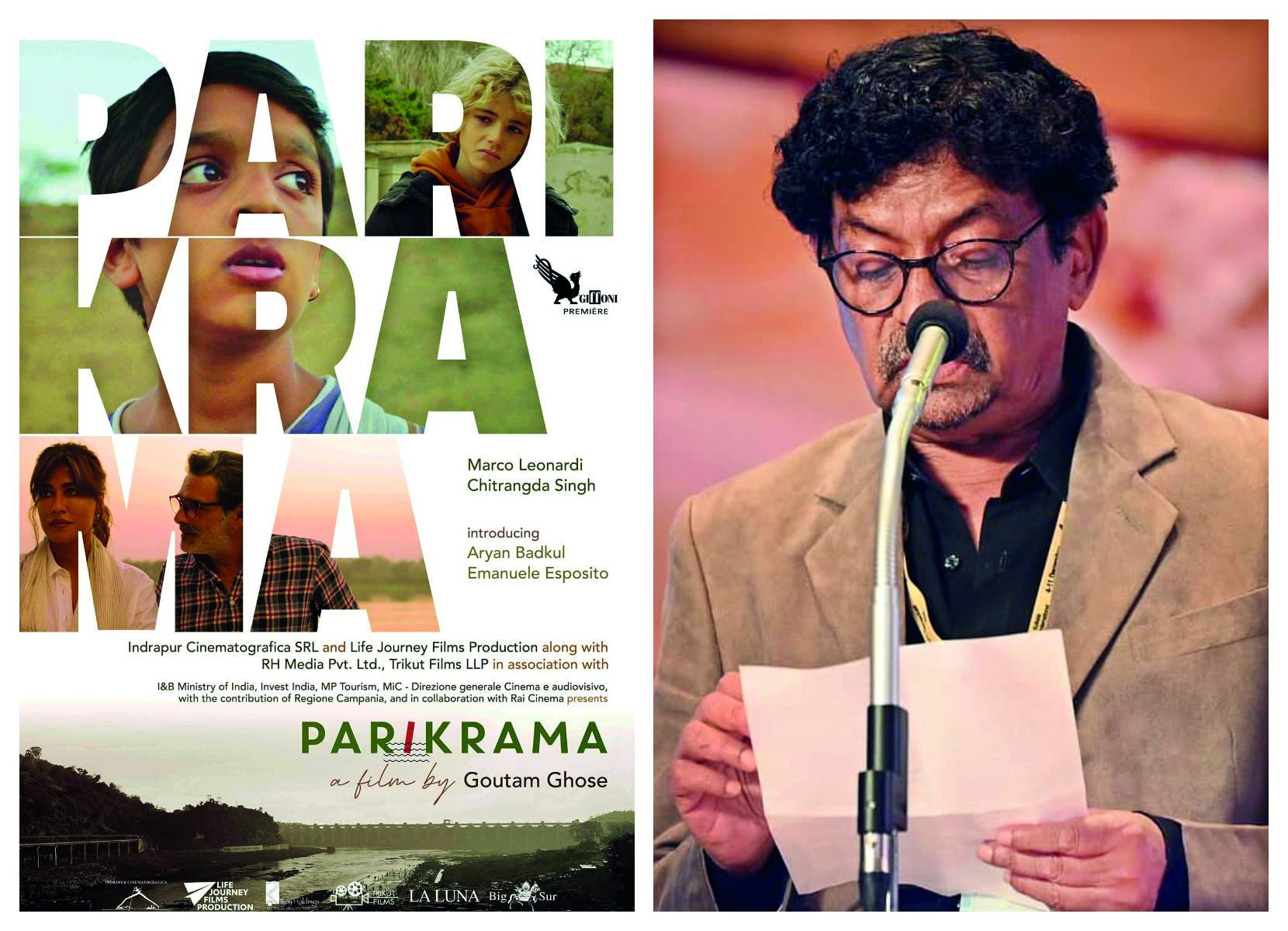Goutam Ghose’s ‘Parikrama’ explores displacement & cross-cultural journeys

KOLKATA: National Award-winning filmmaker Goutam Ghose’s latest film, Parikrama, explores multiple journeys — the journey of pilgrims around the holy River Narmada, the journey of filmmaker Alessandro (Marco Leonardi) from Italy who follows the pilgrimage and the stories along the riverbanks, the journey of Lala (Aryan Badkul), a displaced boy without a homeland and the journey of Alessandro’s motherless son, Francesco. All these paths meander and intersect.
‘Parikrama’ is an important film. It was screened at the 30th Kolkata International Film Festival (KIFF) at Nandan to a full house.
The film has many layers, telling stories of environmental displacement, personal struggles, ecological imbalance and the deep connection between people and nature, showing how a river can symbolise emotions. Set against the backdrop of the ‘Narmada Bachao Andolan’ Ghose was inspired by the writings of Italian author-director Sergio from years ago.
Filming for this Indo-Italian collaboration began in January 2020, with the Asian premiere held at KIFF. “It was a long journey to shoot the film, just like the River Narmada. We began filming in Italy in January 2020, and then Covid hit. It was our parikrama (journey) too.
But I’m happy that the Asian premiere took place in my hometown. The theatre was packed,” said Ghose, director of ‘Padma Nadir Majhi’ ‘Kaalbela’ and ‘Moner Manush’.
Ghose clarified that Parikrama is not a political film. “I was searching for a context and the Narmada issue seemed compelling. The film includes socio-political commentary, but my aim was to create a human story,” he said.
The film, shot by Ghose and his talented son Ishaan (whose directorial debut Jhilli bagged the Best Film award in the international competition section at KIFF in 2022), doesn’t follow a traditional narrative structure, much like the meandering Narmada.
For Ghose, it’s more important that the moments come together to form a complete tale. Reflecting on the changes to the river, he said: “Now, it’s difficult to walk along the banks of the holy river.
There are so many dams and reservoirs… the banks are gone. Hundreds of houses are submerged, and many archaeological sites have vanished. It’s a disaster. River Narmada has suffered a lot.”



